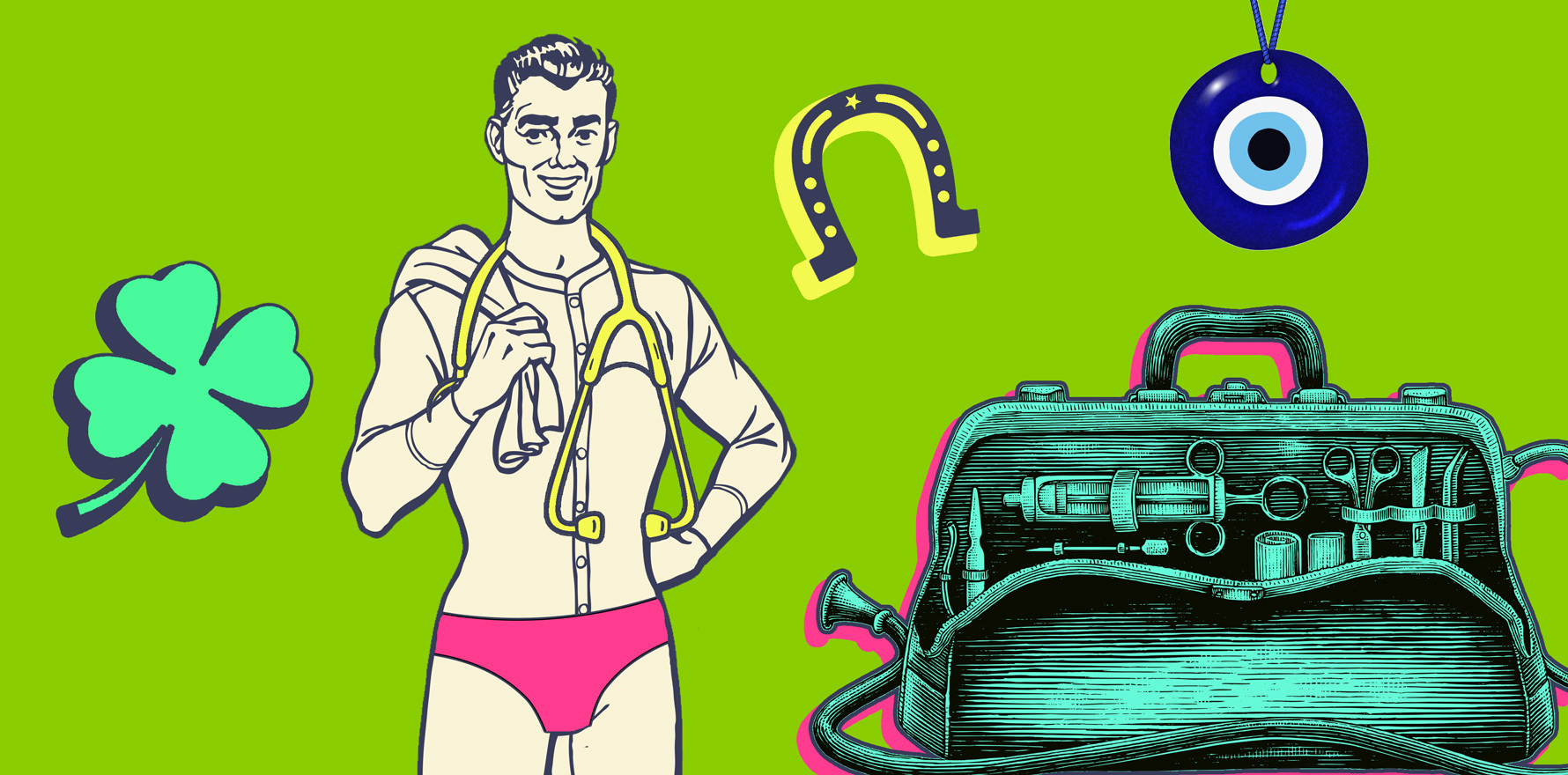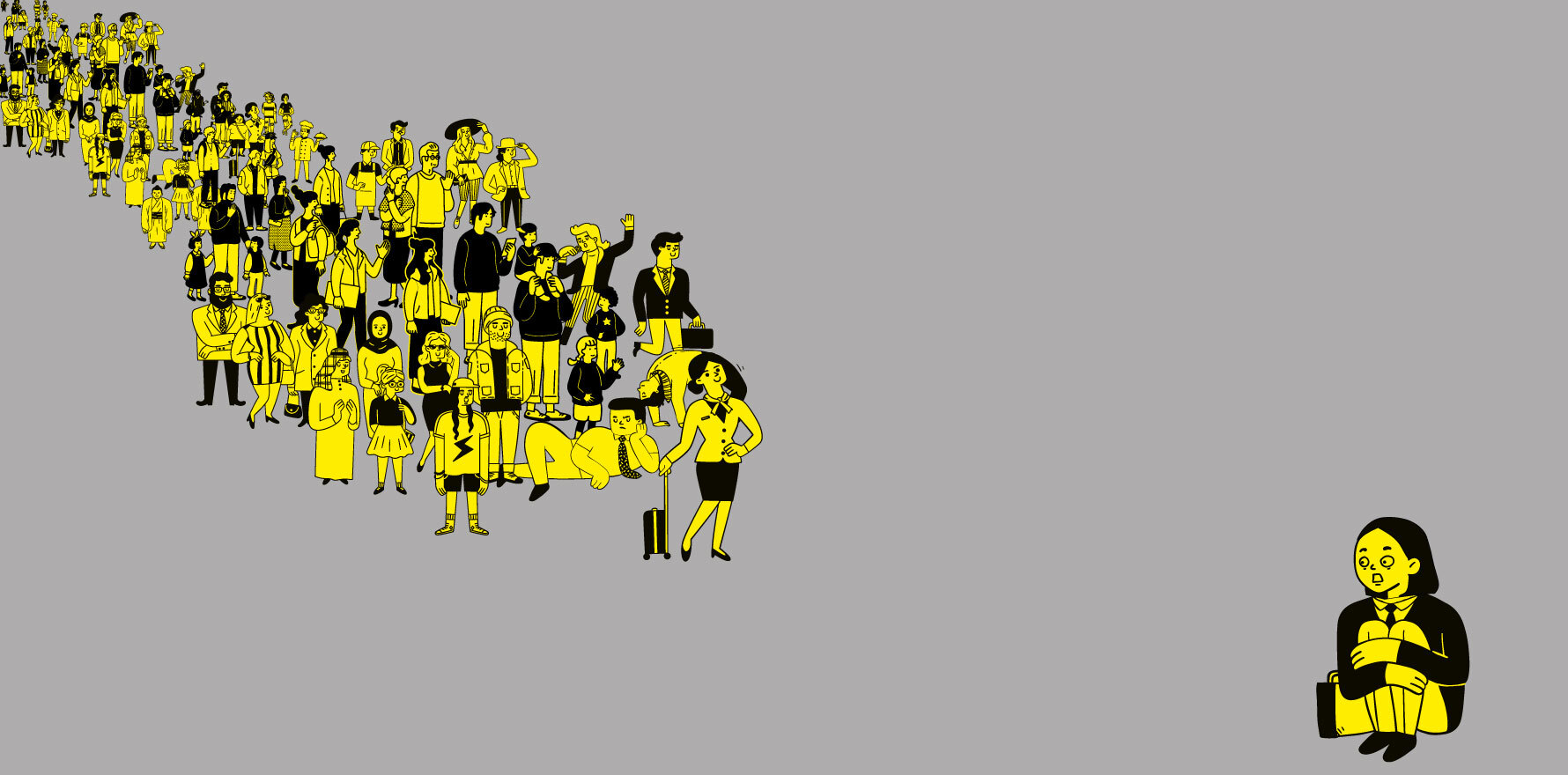It’s not just sportspeople who have rituals and charms – no one wants to break a hot streak in medicine.
For a few months last year, I was cursed.
Every patient I saw with a red-flag symptom turned out to have the associated red-flag condition.
Women presented with postmenopausal bleeding and, like an inevitability, their ultrasounds had thickened endometriums and their hysteroscopy D&Cs all returned endometrial cancer.
A handful of early-middle-aged patients with a change in bowel habits who would normally have had less sinister causes all turned out to have colorectal cancers on their colonoscopies.
I had at least one septic patient a month – as in, hypotensive and tachycardic – needing lights-and-sirens ambulance transfer from the clinic, and subsequent ICU admissions for all.
Patients presented with a change in migraine/headache pattern that I was sure would be explained by lifestyle causes, and behold: meningiomas on MRI brain.
There were at least five or six pregnant women with significant fetal abnormalities on 13-week ultrasounds that were completely unexpected and all incompatible with life.
Routine mammograms for women who had a long history of completely normal two-yearly screening yielded breast cancers.
Consistently, imaging and pathology I arranged to rule out a sinister cause only ever ruled it in. There was truly nothing that came back normal or reassuring or benign. It was just appointment after appointment of breaking bad news.
It lasted perhaps for three or four months, this curse.
At one point, I wondered if I should stop seeing patients for a while because I convinced myself that I was radioactive. Perhaps if the patient presented to a healthy (i.e.not cursed) colleague with the same red-flag symptom, it would have yielded a better result.
Medical friends tried to reassure me: “People are getting sicker, lifestyles are terrible.” “You’re not cursed, you’re doing a good job investigating red-flag symptoms and picking up disease.” “It’s just a bad week.”
After the fourth or fifth bad week, it was getting hard to argue that I wasn’t leaking toxic carcinogenic energy into the universe. Even the receptionists were getting a little nervous booking their favourite patients in with me. No doubt they were trying very hard to not say “Are you sure? The doctor is cursed right now and we’re all trying to avoid her.”
Related
The nurses, of course, were so convinced of the curse that they didn’t want to restock my room and risk exposure, and I kept smelling burnt sage in the corridor.
I wondered if it was shoes again.
I had been cursed before, you see, as a young resident. I had bought a new pair of work shoes. I wore them on a Monday and a patient died, then I wore them again on Tuesday and a patient died, and even though my registrar warned me to not wear them again, I was arrogant – I was unthinking and junior and disrespectful – and I wore them on the Wednesday and a patient died.
I threw them out after the third death. I didn’t have a choice. The shoes were cursed, and I didn’t listen to the registrar when she warned me.
Anyway, it wasn’t the shoes this time. It wasn’t the pen I was using to sign pathology forms. It wasn’t the mug in my room. It wasn’t the hairclip that held my hair, and it wasn’t the new printer that fed the radiology paper. I couldn’t find the source of the curse.
Although it’s kind of humorous to write about now – and recalling the daily 6pm texts from my paediatrician best friend (“What’s happened today? How bad was it?”) – it was truly terrible and tortuous at the time.
Whether I was actually cursed or not (I was, BTW), the amount of serious pathology I was seeing was shocking.
I was constantly ruminating: were there earlier signs for these patients that I had missed at previous appointments? (No.) Was a curse a reportable condition to AHPRA? (No, but I spent an hour on the internet checking.) Was I just over-investigating (yes) and finding incidentalomas? (No – they were problemomas.)
Was this karma for some grave error or offence I had made? (No, because the curse ended as I left the clinic every evening, and returned as soon as I started practice the next morning.) My outside life, my personal life, was perfect and happy and safe.
This was a situational curse.
And then, just like that, one day it ended.
I sent a young child with tiredness and joint pain for bloods, fearing AML, and instead found a very treatable, common and straightforward vitamin D deficiency. My malignancy rate very quickly returned to baseline, and the nurses started refilling my swab container again.
I find that we are very superstitious people in medicine.
Many surgeons have “lucky” scrub caps that they religiously wear. Physician friends often carry little tokens of luck in their briefcases, sometimes as simple as a lucky pen. Small events or actions that yield a “good day” are repeated into habit and then cemented into superstition.
How many of us park in the same spot every day because the risk of deviating from our normal routine is too high when we work in healthcare? What if we move to another car spot and we make a catastrophic clinical error that day? Thank you, no, we’ll just stick to what works and keep the patients safe.
We all know, rationally and cognitively, these behaviours are steeped in OCD traits and perfectionism, but who’s going to challenge that when we have a whole day of patients for whom we are responsible?
It’s easier and more reassuring to just park in the same lucky car spot, and use the same lucky hair tie, and the same lucky pen, and just hope that it makes our jobs a little bit easier and a little bit safer.
I’m not sure the patients would fault us for that – and I’d be curious to see who many patients, if asked by their surgeon “Would you like me to wear my lucky scrub cap during your operation?” would decline with a “No thank you, I don’t believe in things like luck, only your skill.”
Sure.
Anyway, my curse has been lifted. I don’t know how I triggered it, and I really don’t know how I defeated it: someone, somewhere, surely, finally exorcised me (so says my nurse Emily, who was increasingly loitering outside my door, replacing tissue boxes exhausted by grieving and heartbroken patients).
I will try my absolute best for this to never happen again, and I think making sure I never change my car parking spot ever in the entire future of the world is probably the most effective preventative strategy. Yes.
Dr Pallavi Prathivadi is a Melbourne GP, adjunct senior lecturer at Monash University, 2024 RACGP mentor, and newly appointed member of the Eastern Melbourne PHN Clinical Council. She holds a PhD in safe opioid prescribing and was a Fulbright Scholar at the Stanford University School of Medicine, and previous RACGP National Registrar of the Year.





